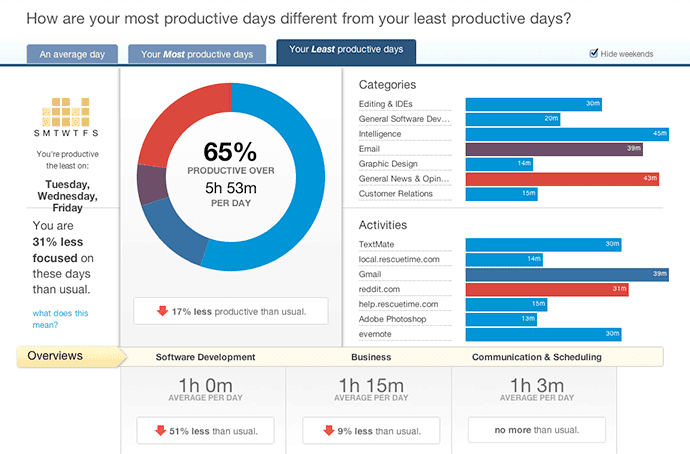Neil Patel on Building Businesses, Learning From Mistakes, and the ROI of Helicopters
To be honest, I just wanted to be rich.
Neil Patel is the co-founder of KISSmetrics, Crazy Egg and Hello Bar, three tools that nearly every SaaS marketer knows, as well as the founder of Quick Sprout, where he helps businesses drive more traffic and make more sales online.
And that’s only the start of it.
Neil consults, invests, blogs and speaks all over the world; in short, he knows what it takes to become a successful entrepreneur.
But perhaps what sets him apart is that unlike many, he’s more than happy to share his secrets.
Neil started his first business, an online job board, when he was just 15 years old.
His motivation?
Simple: to be rich.
Fast forward to today, and his perspective and goals have changed dramatically, but his drive has only grown.
We talked to Neil about the lessons he’s learned building three successful businesses, and we’re excited to share his valuable insights.
We’ve already incorporated some of what he’s shared into our own business, and I hope that after reading this takeaway-packed interview, you’ll do the same.
My First $100K: Neil Patel on Building KISSmetrics, Crazy Egg and Quick Sprout

Why Neil’s First Business Failed
At an age when most of us were busy with homework, after-school activities and summer jobs, Neil was hustling his way through his first business venture.
He wanted to make money, and his first attempt at it was Advice Monkey, an online job board.
I didn’t know how to become rich other than to start my own business. When I was a kid, to me rich was making 100 grand a year.
While Advice Monkey generated traffic, it failed to succeed as a business, becoming one of the first painful business lessons that Neil learned: money isn’t enough of a motivator.
It made me realize that money isn’t everything.
If you’re just working for money, you’re going to get burned out very quickly. Share on X
You have to find something you’re passionate about that solves real problems for people. Advice Monkey didn’t work out and it didn’t work out because I created it for the wrong reasons. I wasn’t passionate about it.
His next venture, an SEO consulting firm he started with Hiten Shah, who would become his serial co-founder in a number of successful ventures, was a different story.
The pair quickly began serving Fortune 500 clients and growing the company, but in 2006, decided to try their hand at building a product of their own.
That’s when Crazy Egg was born.
Lessons Learned from Crazy Egg
Crazy Egg, which hit the 100,000-user milestone in 2013, is a visual analytics tool that shows marketers where site visitors are clicking and scrolling.
But, Neil says, the company might’ve grown even faster if it weren’t for one big mistake.
If he could do one thing differently with Crazy Egg, he’d offer a free plan.
We killed freemium off too early, and it was a huge mistake. Share on X
Interestingly, Neil’s co-founder Hiten Shah shared a similar insight in his interview when he advised that every SaaS business should strongly consider having a free plan.
Neil agrees.
Free users can eventually pay you as they’re growing, but it’s not just that; your free users will drive you even more users.
How Neil Manages His Time
In between running multiple companies, speaking, angel investing and advising startups, Neil blogs. A lot.
He writes 8 posts per week, enough to make even the most aggressive content marketers feel lazy.
But the easy excuse that many entrepreneurs fall back on about not having enough time to blog?
It’s just bullshit. It’s like, you don’t have time to blog but you have time to watch three hours of TV? You have time to hang out with your friends and get drunk.
Yeah, you might have to make sacrifices in life and you might not have as much fun, but who cares? If you want to do something and you want to get good at it, you have to put in the time and effort.
Often, people don’t have the time because they’re inefficient in their lives. I use tools like RescueTime, which tells me where I’m wasting time and how to fine tune everything so that I can focus on the most important tasks.

But it’s not just time management that helps Neil be effective; he’s also built habits that help him stay focused and productive:
I wake up early, I do think that’s important and I do try to do some kind of working out in the morning, whether it’s running or whatever it may be. Doing something early in the morning just usually helps me.
If you get up early you’ll do the stuff that you typically wouldn’t do. For example, if you’re healthy as an entrepreneur, you eat healthy and you work out, then you’ll probably work better, too.
Now if you say “I’m gonna go work out at 5 o’clock at night,” the problem is that 5 o’clock comes and you’re like, “I’m so exhausted from work, I don’t have time to work out, I just want to go home and relax and chill,” so unless you do the stuff that you don’t like doing – which is usually the stuff that’s good for you – early in the morning, you’re probably not going to get it done.
KISSmetrics’ Big Content Marketing Mistake
Neil and Hiten’s second SaaS business, KISSmetrics (which we use and love at Groove), was one of the pioneering SaaS companies when it comes to building a company through content marketing.
Their blog continues to publish some of the most valuable marketing and optimization content on the web.
But for a long time, the content they were publishing wasn’t the content that Neil would publish if he could do it over.
Why?
Because while the blog was optimized for traffic, it wasn’t optimized for the right kind of traffic.
When we first started off, we would just write content that would generate traffic, as opposed to content that specifically benefits a potentially paying customer.
It was a mistake.
We would teach people how to optimize your blog or optimize in search engines, but our paying customers aren’t bloggers. Our paying customers are typically SaaS business and Ecommerce sites.
Neil’s advice for content marketers: rather than writing to simply generate traffic, first find out exactly what problems your paying customers have, and write content that solves those problems for them.
The Importance of Learning From Mistakes
If it sounds like many of Neil’s insights come from his past missteps, that’s not by accident.
Neil is a huge fan of studying and learning from mistakes… his own, as well as others’.
The way I look at life and entrepreneurship is this: as an entrepreneur, you’re going to make mistakes, and the people around you are going to make mistakes.
Even the Elon Musks of the world, the Mark Zuckerbergs, the Bill Gates’, they all make mistakes. No one’s perfect.
As humans, we inherently tend to keep repeating the same mistakes over and over again, but if you can learn from your mistakes and avoid repeating them, your chances of success are going to continually rise.
On top of that, if you can learn from other people, whether it’s Steve Jobs, Bill Gates, whoever it may be, and avoid repeating their mistakes, again, your chances of success are going to drastically rise.
Keep in mind that even though business has changed over the years with the internet, the underlying business concepts and principles are still the same. Even if you look at the days of Rockefeller, the concepts and principles of business were pretty much the same as they are today. Sure we have the web and he didn’t, but the realities of things like how to deal with competition are still very relevant to this day, and worth learning from.
One big lesson Neil shares that we can learn from the (more recent) past comes from Google.
Don’t ever dismiss someone who doesn’t have the resources you have, but who’s hungry. Share on X
A lot of people dismissed Google: “oh, small company, a search engine, whoop-dee-doo.”
But Google was really hungry, and now look at them.
When you see these entrepreneurs who are really determined, you have to pay attention to them because those are the ones most likely to disrupt what you’re doing.
It was a lesson that Neil had to learn the hard way:
I actually had a guy who came up to me and told me he was building a competitor for one of my businesses, and I’m like, “ok yeah, go ahead, try it.”
He was going to program it in his bedroom and see if he can get it up, and he created a free version and he actually started taking away some business. You’ve got to watch out for these young kids. Just because he has no money or experience doesn’t mean he can’t actually succeed or hurt your business.
How To Deal With Competition
Neil’s story about his young competitor isn’t a unique one; nearly every business that achieves some level of success and visibility will see clones come out of the shadows.
Neil’s advice for dealing with them?
You just have to execute faster and go for distribution.
A lot of companies, especially early on, look to optimize for revenue. Although revenue looks good, the company that’s going to win in any SaaS vertical, especially early on, is the one that has the most distribution.
So if you have the biggest, largest user base out there, eventually you can figure out how to upsell, monetize and reduce churn. Don’t worry too much about revenue, focus on distribution.
And how can a company get more distribution?
You’ve got lots of options, Neil says.
It’s going to be different for every company.
Hello Bar has a “Powered by Hello Bar” button right on the bar.
Another thing you can end up doing is offer an eBook or something that people can download from your blog, and once they say yes and give you their name and email, you can give them the option of signing up for a free trial.
It’s all about just testing a lot of these things to see what works for your business and what doesn’t. I’ve found that some SaaS companies can be cash-flow positive just spending money on paid ads, so in that case, how much more money can you spend on advertising?
But testing and optimization aren’t the only things that matter; educating your market is important, too.
With Quick Sprout, I could just create content marketing software and try to get it out there, but messaging changes everything. If I can blog and educate others on how certain things are important in content marketing and get them to think about it, then more people are going to understand and believe in content marketing, and hopefully end up using the product.
For example, every time I create infographics, I could have a quick description of what content marketing is at the end of each infographic. By doing that, I’m helping shape what the web thinks content marketing is, and I can help relate that definition to what I’m selling, which will help in the long term of getting people to convert.
Messaging and branding are really important; older companies, like the Coca Colas of the world, see how valuable it is.
Just look at HubSpot. They defined inbound marketing, they’re known for it, and that’s why they do so much better at it than anyone else in the space.
Think of how much money they’ve spent on marketing eBooks, webinars, courses and conferences about inbound marketing. They even created inbound.org.
They’re helping shape the conversation so that when people think, “oh we need inbound marketing”, they immediately think HubSpot.
By being the ones to educate people, even if you’re not in a new space, people will start seeing you as a leader. When you’re seen as a leader, when people are interested in buying a product or a service, they’re going to naturally come to you even if your product isn’t as good as someone else’s.
The ROI of a Helicopter
One of the things that Neil might be best known for, other than his products, are the tests he runs and writes about on his blog.
He’s done some pretty out-there stuff. To see an example, look no further than his post on the ROI of dressing up: How Spending $162,301.42 on Clothes Made Me $692,500.
His tests aren’t just interesting to read about. They’re also absolutely fascinating in-depth looks at the psychology of sales, marketing and human behavior.
One of his recent adventures that hasn’t yet made it to his blog?
Neil leased a helicopter.

To be precise, Neil signed up for a shared corporate lease on a helicopter.
Now, the only reason I did this is because driving actually stresses me out and I get in a lot of car accidents. I try not to drive, and I use Uber.
But sometimes going from one place to another will take two and a half hours in traffic, but literally 15 minutes in a helicopter. Share on X
Accounting for time, my cost is literally pennies on the dollar but I’m not even spending that much. It would cost me more to own a Mercedes than a helicopter.
But it didn’t just save him time. It also made an impact on his business.
It was funny: once a few people found out about the helicopter, I’ve been hit up by so many people wanting to do business with me because they’re like, “wow you must be on a whole other level.”
It’s all bullshit. I never said I was successful, nor did I ever tell anyone how much I am spending or not spending on it, but people assume stuff and it’s kind of crazy how this world works.
My mom was a teacher and she never did well financially, but does that mean she wasn’t successful? No, in my eyes she was more successful than me because she’s impacted more lives.
But people equate material goods with success and I think that’s totally the wrong way, but that’s how society is especially, in the US, so you can make more money by showing off.
But even those of us without access to helicopters can apply the lessons from Neil’s tests to our own lives and businesses.
One important result that came from many of his tests (like spending money on designer clothes) is that it made Neil more confident in meetings.
And that’s something we can all work on.
Confidence is super important.
Sometimes when people meet me, especially in business meetings, they tell me that I give off this aura that’s like “how can I help you, how can we work together? And if we can’t, then let’s just part ways and move on.”
That actually makes people want to work with me more.
But you don’t have to spend a lot of money to get that. Just do what gives you confidence.
That might mean a new haircut for someone, or for someone else it might be new clothes, for someone else, wear a nicer watch. For another person it could be as simple as buying a book on a specific subject so you feel you’re the smartest guy in the room.
Whatever it may be, do whatever it is that gives you the highest amount of confidence.
A Million-Dollar Idea That Anyone Can Steal
We asked Neil, an idea machine, for a free business idea that he’s confident could become a million-dollar company.
He didn’t even hesitate for a second.
Email.
There are apps out there, but they’re all shitty apps for people who get a lot of emails.
There are a lot of people like me who have to go through 400 emails a day. When you have that kind of volume, I haven’t figured out any other solutions for managing it efficiently other than Gmail filters and having assistants.
Much of my information is sensitive, so I can’t actually give an assistant a login to my email inbox. I can forward emails over to them that I need help with but I can’t actually give them a login.
If someone figured out a way, not just Priority Inbox, to make emails more efficient, that’d be really useful. Maybe it’s machine learning where it figures out what the email is about and it tells you if you responded to similar emails in the past.
I don’t know what the solution is, but if someone actually created a solution to help people spend less time in their inbox, that would be extremely successful.
Neil’s Required Reading
Groove’s blog subscribers tend to be voracious readers who work tirelessly to better themselves and their businesses. That’s why we’re asking each of our My First $100K interviewees to share their favorite blogs that they read daily.
Neil’s Picks:
Your Turn: Ask Neil Anything
Neil has (very) generously agreed to answer your questions in the comments of this interview. We’re going to be watching closely and trying to learn as much as we can ourselves, so don’t be shy.
Post your questions for Neil in the comments below.